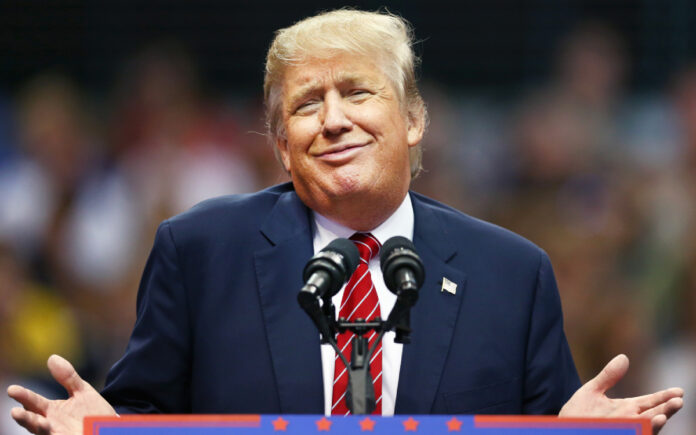Washington: As trade tensions escalate between the United States and Canada, U.S. President Donald Trump has reportedly raised concerns about the longstanding border demarcation treaty and shared water agreements between the two nations. According to a report by The New York Times, Trump conveyed his dissatisfaction with these agreements during a conversation with Canadian Prime Minister Justin Trudeau.
Citing four anonymous sources familiar with the discussion, the report states that during an early February call, Trump not only questioned the legitimacy of the 1908 border treaty but also voiced frustration over the water agreements governing shared lakes and rivers.
Tariff Dispute and Trudeau’s Response
The development follows Trudeau’s strong rebuke of Trump’s tariff policies. Speaking to reporters in Ottawa, the Canadian prime minister dismissed Trump’s justification for tariffs as “completely bogus, unjustified, and false.” Trudeau went further, claiming, “What he wants is to see a total collapse of the Canadian economy, because that’ll make it easier to annex us.”
Trump’s Concerns Over Trade Policies
According to the New York Times report, the February 3 conversation centered not only on potential tariff relief but also on Trump’s broader grievances regarding U.S.-Canada trade relations. Among the key issues he raised were:
- Canada’s protected dairy sector, which limits U.S. exports.
- Barriers faced by American banks in operating in Canada.
- Canada’s consumption taxes, which Trump argues put American goods at a competitive disadvantage.
Additionally, Trump expressed interest in revisiting agreements that regulate the use of shared waterways, particularly the Great Lakes—Superior, Huron, Erie, and Ontario—governed by decades-old treaties.
Possible Military and Intelligence Repercussions
In a separate media interaction on January 7, Trump suggested he was considering using “economic force” against Canada. His remarks have intensified social media narratives portraying Canada as the “51st state” and Trudeau as its “Governor”, narratives that have reportedly caused frustration within the Canadian government.
Also Read | South Carolina Conducts First Firing Squad Execution in the U.S. in 15 Years
Moreover, the New York Times report claims that Trump explored the possibility of removing Canada from the ‘Five Eyes’ intelligence alliance, which includes the U.S., UK, Australia, and New Zealand. He also reportedly suggested reevaluating military cooperation, particularly Canada’s role in the North American Aerospace Defense Command (NORAD).
Also Read | Zelenskyy Vows to End War as Ukraine Prepares for Talks with US and Saudi Officials
While no official actions have been taken, Trump’s remarks signal a potential shift in U.S.-Canada relations that could have far-reaching implications for trade, security, and diplomacy.



